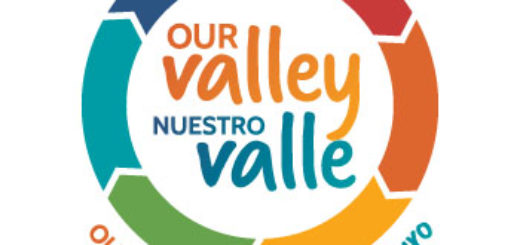Intelligence Squared fosters debate and civility on key national issues
Despite the highly contentious and emotion-driven political atmosphere that is ripping apart the social fabric in America, one can still find information sources based on rational discussion and mutual respect that invite us to listen to different perspectives and test our ideas.
It is unfortunate that the national news media and social media platforms are exacerbating conflict and division in our society by feeding us information and perspective based on singular worldviews rather than offering us a diversity of viewpoints.
As a result, most of us are listening to sources that tend to reinforce our political leanings, and that’s not healthy. We need to be testing our ideas, incorporating new information and discarding things we thought were true but that we discover are wrong.
I’ve written about one of those organizations — Braver Angels — a national nonprofit that seeks to knit together our society by bringing people from across the political spectrum together to have honest and forthright discussions about the most vexing issues in our society. You can check out their debates, tools for depolarization and other offerings at braverangels.org.
I’ve become acquainted with another organization doing similar work in recent weeks — Intelligence Squared (intelligencesquaredus.org, a nonprofit dedicated to restoring “critical thinking, facts, reason and civility to American public discourse.”
Last week, I listened in on a national debate testing the premise that Amazon is good for small businesses. I was impressed by the format. You can find the organization’s work here:
https://www.intelligencesquaredus.org
Speaking in favor of that thesis was Mark Jamison, an economist with the American Enterprise Institute and Kunal Chopra, a former Amazon executive. Arguing the opposite viewpoint were Rana Fooroohar, a columnist for the Financial Times and Stacy Mitchell, a strategist and author who is co-director of the Institute for Self-Reliance.
The Intelligence Squared approach is thoughtful. Before the debate starts, those who attend the debate are asked to indicate whether they agree, disagree or are undecided on the proposition. After listening to the arguments, attendees vote again. The “winner” of the debate is the side that changes the most minds.
The moderator, in this case John Donvan, poses followup questions to help clarify the positions of the panelists.
The essential argument for the notion that Amazon benefits small business is that the company creates a platform accessible by all that allows entrepreneurs to serve their current customers and potentially reach a global audience thanks to Amazon’s tools.
The argument against this was that those who want to start a business should be able to succeed on their own merit and that their ability to succeed shouldn’t be subject to the whims and dictates of a company with massive market power.
There are facts that support both sides. The number of small businesses earning over $100,000 in sales on Amazon has increased from 100,000 in 2016 to an estimated 250,000 in 2021, so some businesses are succeeding. On the flip side, a 2019 survey of independent businesses conducted by the Institute for Local Self-Reliance found that 82 percent of small businesses felt that Amazon was having a significant or somewhat negative impact on their revenues.
I appreciated being able to sit back and think about these issues during the debate without the debaters yelling and screaming at each other. Attendees heard thoughtful answers and strongly divergent opinions.
For those of us interested in testing our opinions and listening to thoughtful but spirited debates on critical issues, the Intelligence Squared approach is just what the doctor ordered.
We can emulate that approach in dealing with the issues that crop up in our communities, as well. If we want to foster community, that’s what we’ll do.


